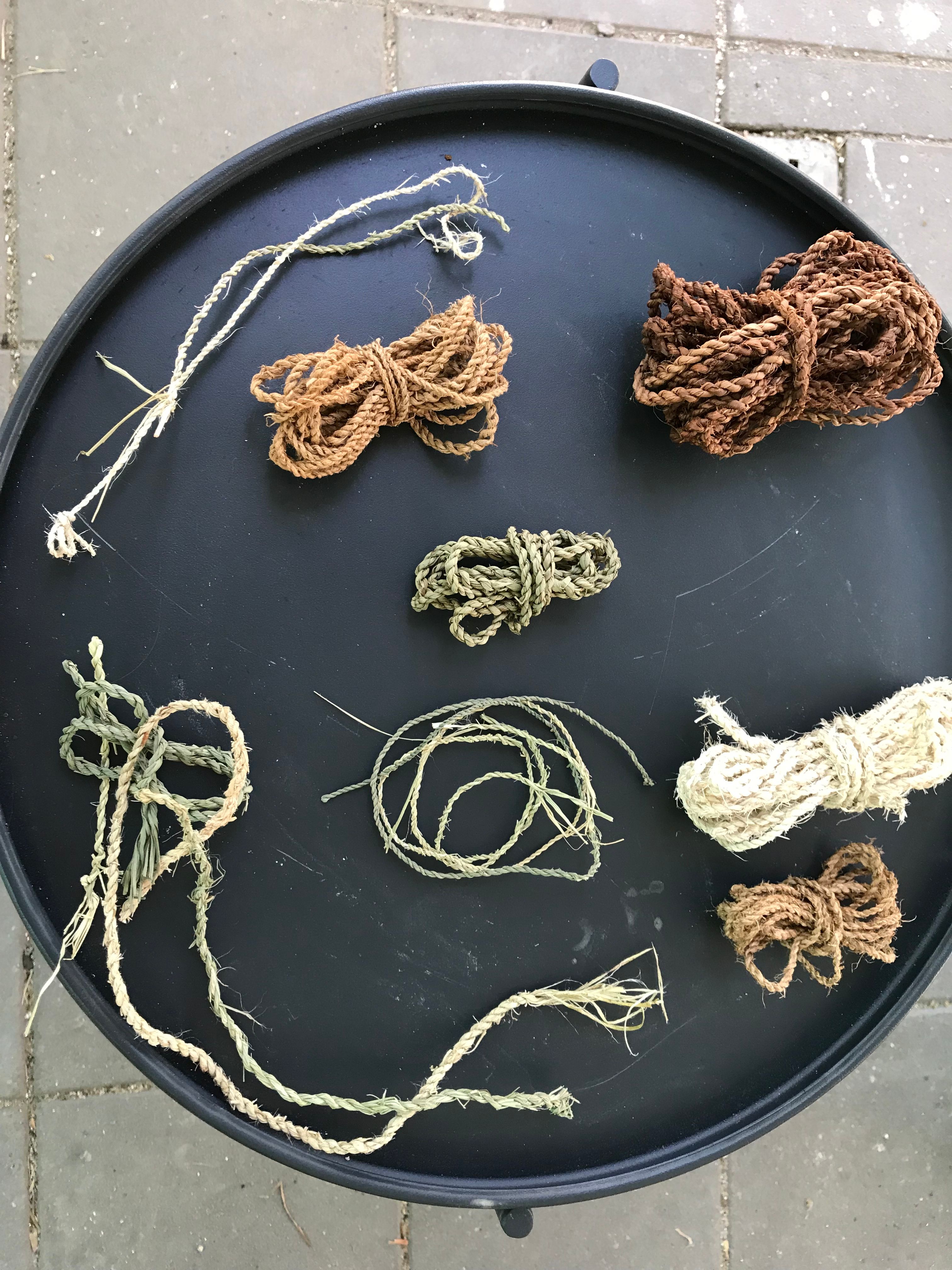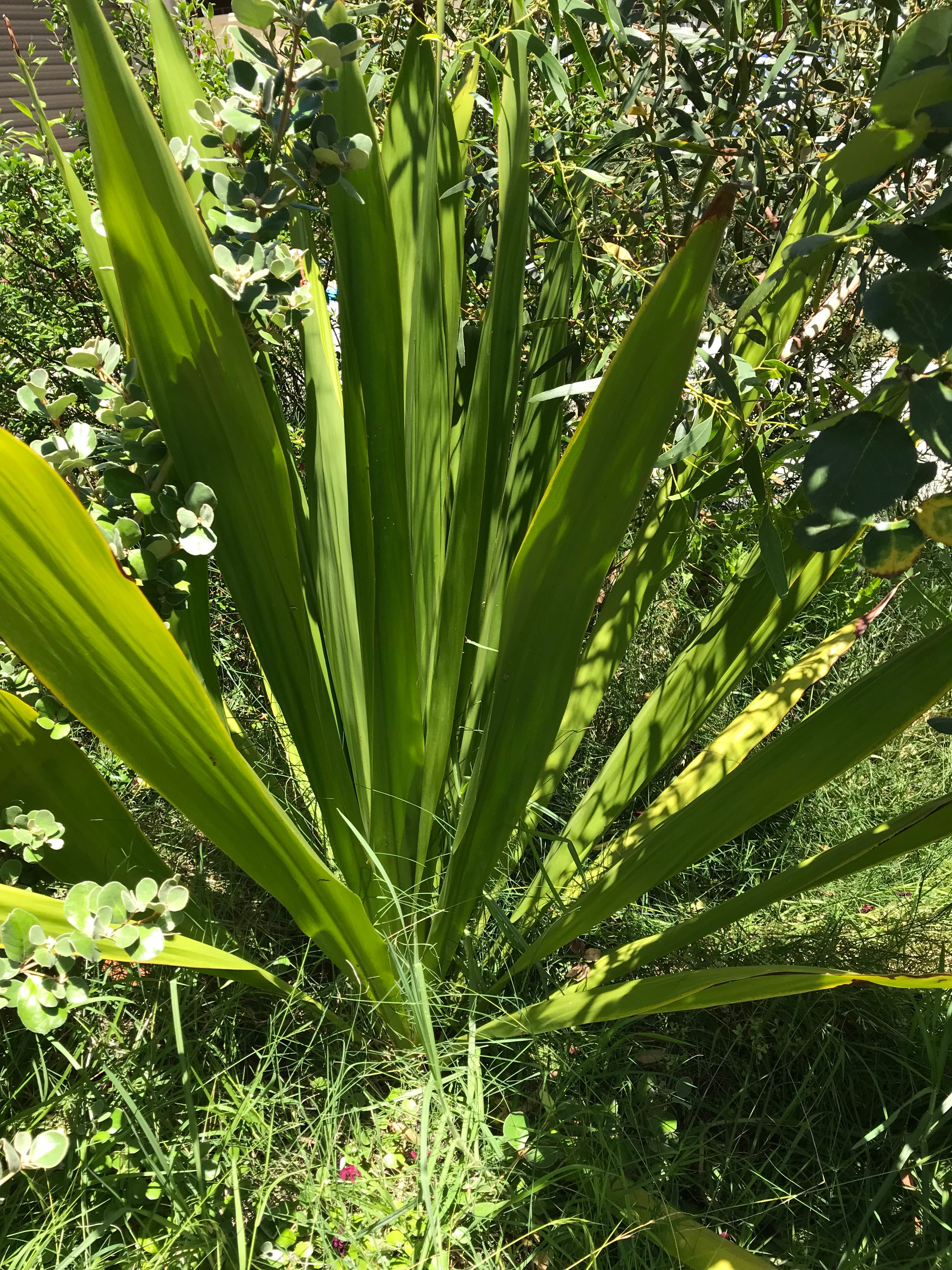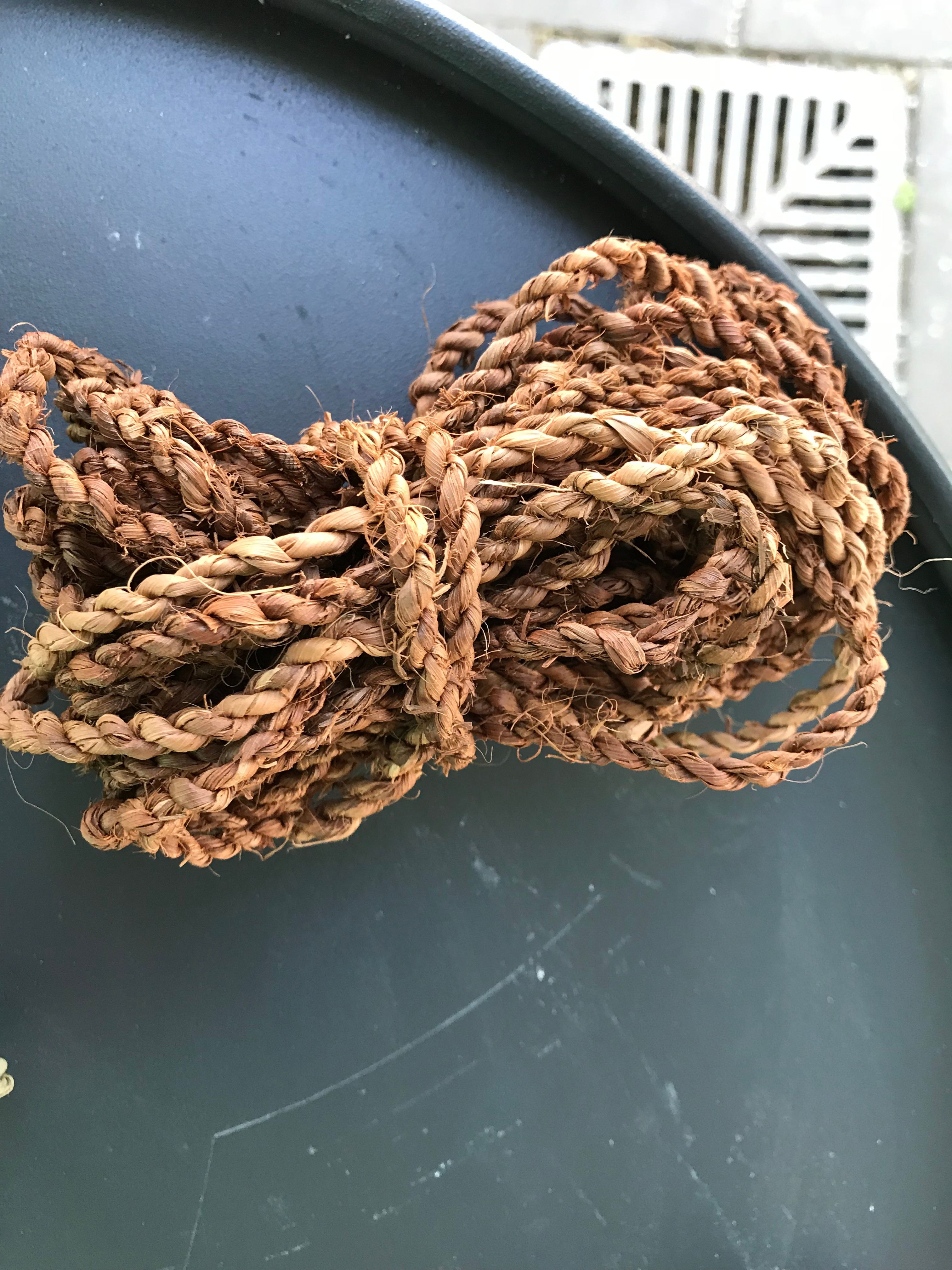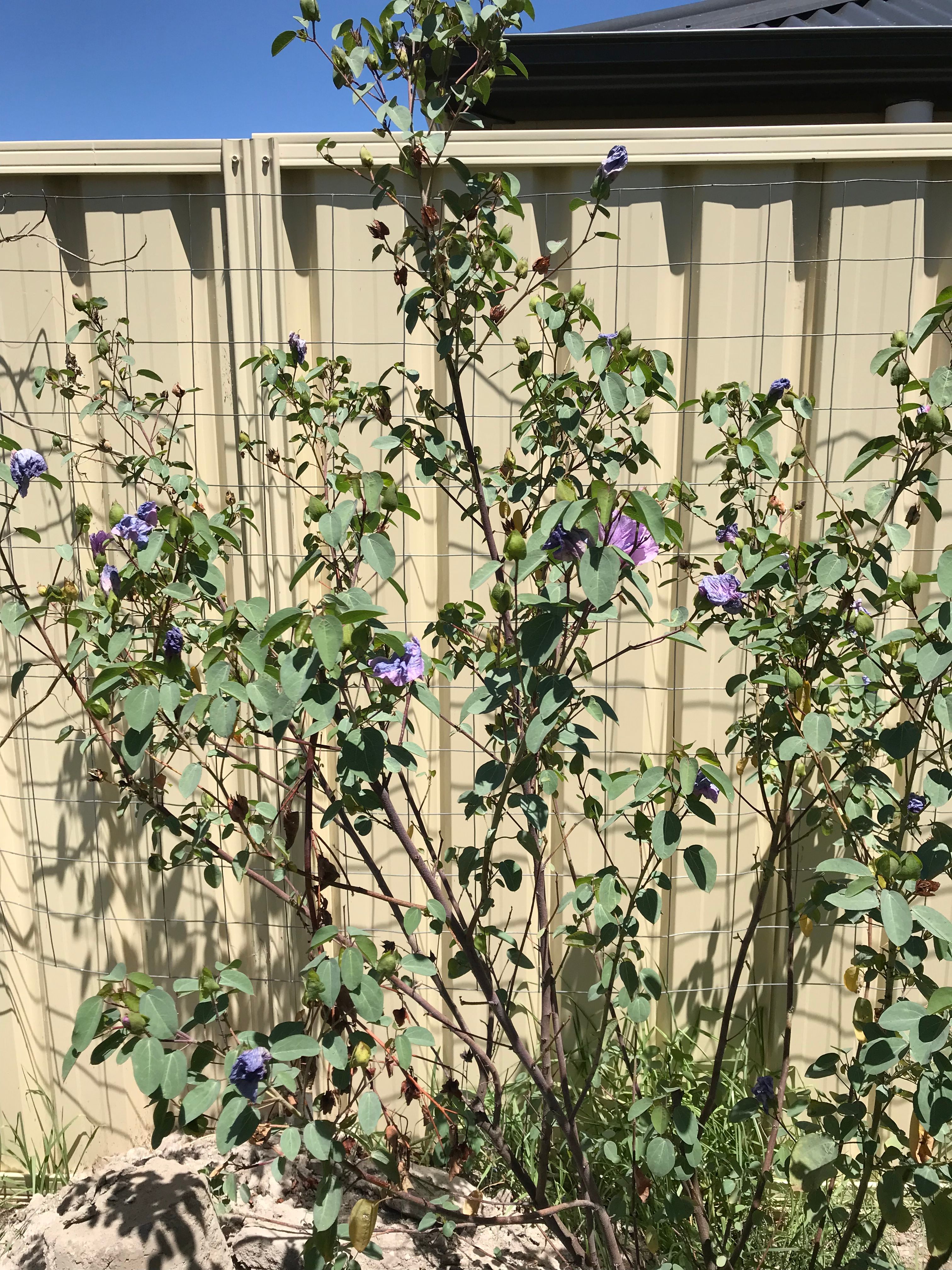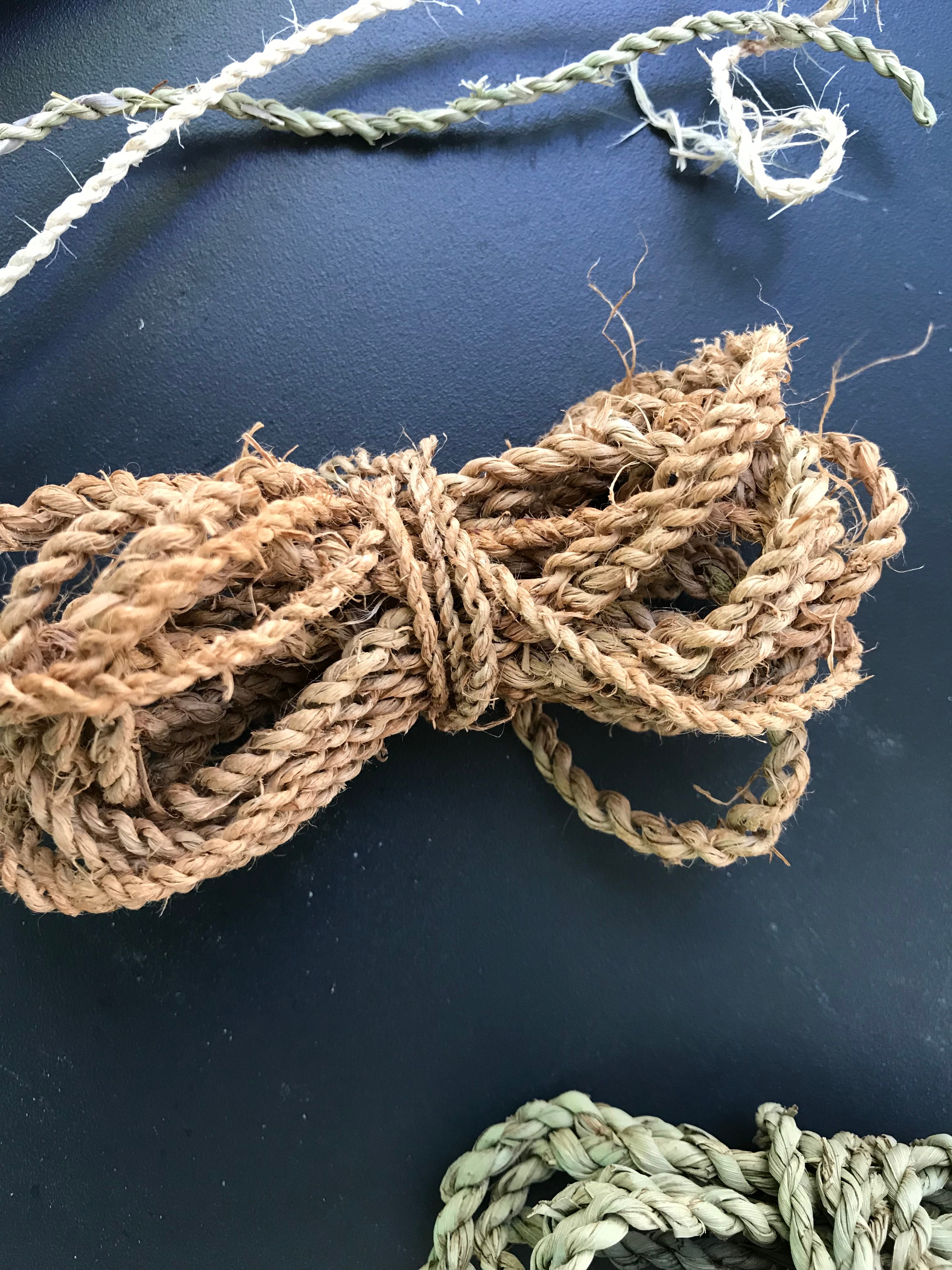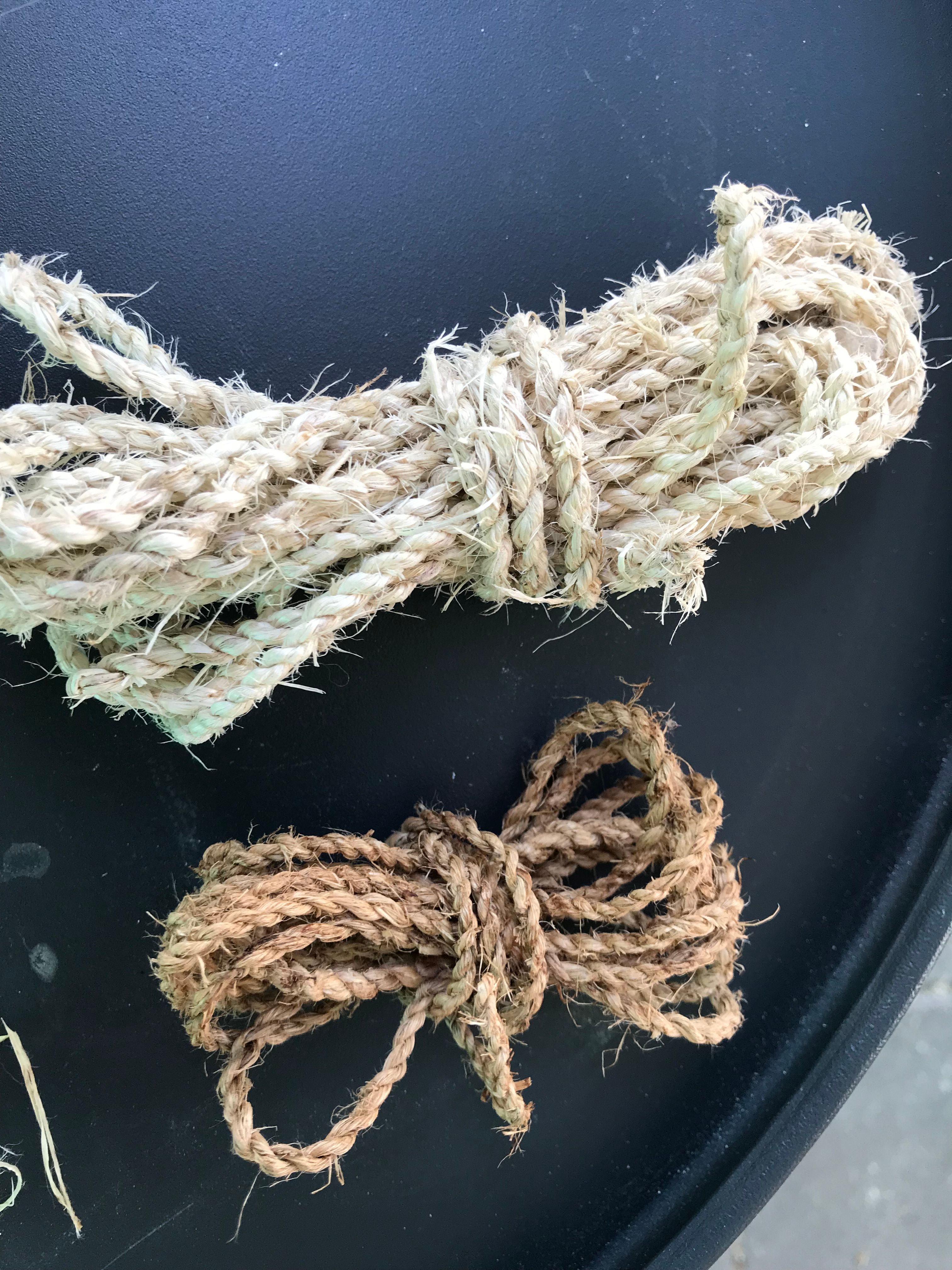Various native fibres made into rope
I have been experimenting with some locally available plant to extract fibre to make string and rope for fun.
I have always been interested in self sufficiency and wondered how rope was made, it is something that has been used by humanity likely from the earliest times, and of course YouTube supplied plenty of information on the principle.
I also researched on what plants were used by aboriginal tribes for fibre and then started to look for these plants.
The first I tried was Gymea Lily (Doryanthes excelsa) which I happen to have growing in my front yard.
I just pulled off the brown shriveled leaves and stripped them into long then parts and used these to twist into rope, which seems extremely strong.
I am not too surprised as the green leaves are impossible to pull off this plant, the attach so strongly and don’t seem to rip across the leaf fibres so I thought it should be strong.
The next plant I tried was Sturt’s Desert Rose (Gossypim sturtianum) which I also already had growing in my back garden.
This is a shrub type plant that has long thin stems, so after cutting of a stem and stripping the leaves, I used a knife to split down along the stem and then peeled the outer bark away from the inner wood.
I then removed the hard outer bark from the inner fibrous bark by scraping with the knife blade. I then stripped these cleaned back sheets into as small as possible strips and left them to dry for a few hours before twisting into rope.
The rope is quite soft and feels a little elastic but the fibres are not as strong as the Gymea Lily. Sturts Desert Rose is an Australian native relative of commercial cotton, which is why I thought it might have useful fibres.
The third species I used was the Austral Hollyhock (Malva preissiana) which I don’t have a photo of as it grows during the cooler months. This plant was an important food and fibre plant for the local aboriginal tribes and grows like a weed in the area I live, filling up vacant blocks and unkempt parts of the garden.
It makes great fibre which is reasonably easy to extract. I firstly used the same method as the Desert Rose and that worked fine, but I also tried retting this bark which produced a much cleaner and softer fibre.
The colour difference in the photo above was due to the smaller coil being soaked in tannin for 24 hours which is supposed to lengthen the life of the rope. This produced my favourite rope and I am going to try to spin the fibres into yarn to see if I can make some cloth.
So it has been fun making string and rope, I tried a few other species but the results weren’t as good as the three above. I am trying to source some carders to split the fibres fine and then see if I can build a simple loom.
Thanks for reading my post.
